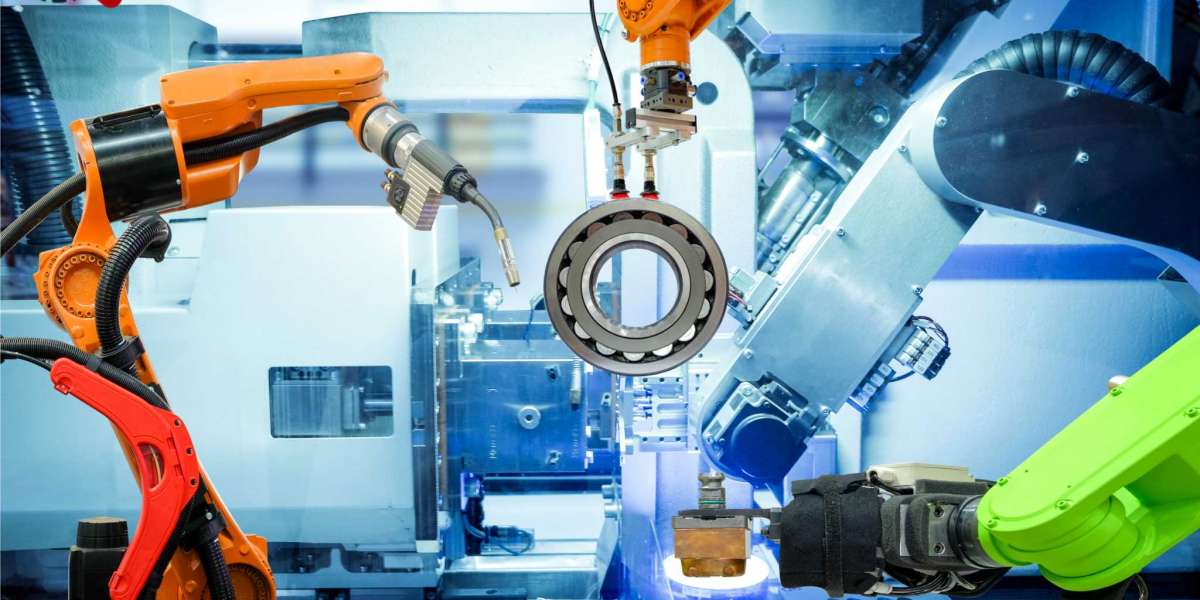The Metal Foundry Products Market Share is dominated by several key players who are leveraging advanced technologies and strategic partnerships to enhance their offerings. Major companies are focusing on expanding their production capabilities and diversifying their product lines to capture a larger market share. The competitive landscape is characterized by a mix of established players and emerging companies, all striving to innovate and meet the growing demand for metal foundry products.
The Metal Foundry Products Market is experiencing significant growth, driven by demand from automotive, aerospace, construction, and industrial machinery sectors. Metal foundries produce essential products such as castings, molds, cores, and alloys used in the manufacturing of various metal components. These products are critical for achieving structural integrity, precision, and durability in complex metal applications.
Foundry products include sand molds, metal molds, castings, core boxes, and refractory materials. Technological advancements in casting methods, including investment casting, die casting, and precision sand casting, have enhanced product quality, reduced waste, and enabled the production of complex shapes with high accuracy. The adoption of automation and robotics in foundries is further improving operational efficiency and reducing lead times.
Market Drivers
The automotive industry remains a primary driver of the metal foundry products market. High-performance engines, structural components, and transmission systems rely heavily on precision castings. The aerospace industry also contributes to growth due to the requirement for lightweight and durable alloys capable of withstanding extreme conditions.
Another driver is the construction and infrastructure sector, where metal castings and molds are essential for structural frameworks, machinery parts, and building components. Additionally, the industrial machinery sector demands high-quality castings and molds for producing components such as gears, valves, and pumps, fueling market growth.
Technological Advancements
Technological innovation has transformed the metal foundry industry. Advanced molding techniques, simulation software, and CNC machining allow for higher accuracy, reduced defects, and shorter production cycles. Automation and robotics are increasingly used to handle molten metals safely, optimize mold handling, and reduce human intervention. New alloys and heat treatment processes also enhance the strength, corrosion resistance, and longevity of cast components.
Regional Insights
Asia-Pacific dominates the metal foundry products market due to robust industrial growth, extensive automotive manufacturing, and rising construction activities in countries such as China, India, and Japan. North America and Europe also hold significant market shares, driven by aerospace, automotive, and heavy machinery sectors. Emerging markets in Latin America and the Middle East are investing in foundry infrastructure to meet growing industrial demand.
Future Outlook
The future of the metal foundry products market lies in technological innovation, sustainability, and efficiency. Environmentally friendly casting methods, energy-efficient furnaces, and reduced metal waste will be critical to market growth. Increased adoption of additive manufacturing and 3D printing in foundry applications will further enhance design flexibility and reduce lead times. Companies focusing on advanced alloys, automation, and smart foundry solutions are likely to lead the market in the coming years.
Conclusion
The metal foundry products market is poised for steady growth, driven by demand from automotive, aerospace, construction, and machinery sectors. Technological advancements, sustainable practices, and automation will play key roles in shaping the market’s future.
FAQs
Q1. What are the key products in the metal foundry market?
Core products include castings, molds, cores, alloy components, and refractory materials.
Q2. Which industries are the main consumers of foundry products?
Automotive, aerospace, construction, and industrial machinery sectors are the primary consumers.
Q3. How is technology impacting the foundry industry?
Automation, advanced molding techniques, simulation software, and robotics are improving precision, efficiency, and safety while reducing defects and production time.
More Related Reports:
Sensor Based Sorting Machines For Mining Market
Stone Processing Machine Market







